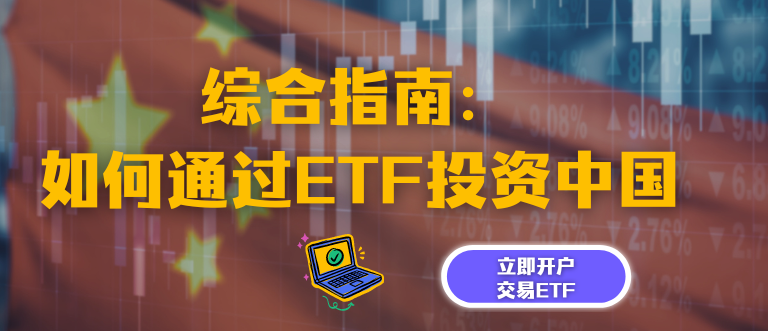Stock quotes
Table of Contents
Stock quotes
The financial world revolves around information, and stock quotes are one of the primary information sources for investors. They offer real-time data on the market value of listed companies, and their ongoing fluctuations reflect changes in the financial and business climates. Stock quotes are crucial for investors to decide whether to buy, sell, or hold stocks. Since the introduction of online trading, anyone with an internet connection can now easily access stock quotes, putting individual and institutional investors on an even playing field.
What is a stock quote?
A stock quote provides the most recent market prices for a particular stock traded on a stock exchange. The information it provides includes the stock’s bid and ask prices, last traded price, trading volume, and percentage change in value from the previous day’s closing price.
Real-time stock quotes are frequently provided, allowing investors to keep track of their holdings and decide about a stock. They are also used to analyse market trends and compare the performance of various stocks. In the current digital era, stock quotes are easily accessible through online platforms and financial news sources.
Understanding stock quotes
The prices of publicly traded companies’ shares listed on stock exchanges are updated in stock quotes. They display the most recent buying and selling prices and the share’s market value.
A stock’s price changes frequently depending on several variables. Online brokerage services, financial websites, and various financial news sources all provide real-time access to stock quotes. Investors looking to make investment decisions can learn a lot from these quotes.
Investors can use stock quotes to track the performance of specific stocks or the market as a whole, find potential investment opportunities, and decide whether to buy or sell shares.
History of stock quotes
Stock quotes have been an essential part of the financial world for decades, and tracing their history can be quite intriguing. The practice of trading stocks has been around since the early 17th century, but in the late 1800s, stock quotes became a staple in America.
The New York Stock Exchange (NYSE), established in 1792, played a significant role in popularising stock quotes in the US. By the 1860s, telegraph lines were used to transmit stock prices to brokerage houses across the country and thus began the era of real-time stock quotes.
On the other hand, Singapore’s stock exchange, also known as the SGX, has a relatively shorter history than its American counterpart. The SGX was established in 1973 as the Stock Exchange of Singapore and was renamed to its current name in 1999. However, despite being relatively young, the SGX has made tremendous progress in technological advancements and market capitalisation. Today, it is one of the leading exchanges in Asia and a hub for various financial instruments such as equities, derivatives, and commodities.
As more companies started issuing stocks, financial newspapers such as the Wall Street Journal began publishing daily stock tables listing the current prices of various stocks. With the introduction of electronic trading and the Internet, stock quotes are now available in real time to investors worldwide. Today, stock quotes are a crucial tool for investors as they help them make informed decisions about when to buy and sell stocks based on the state of the market.
Importance of stock quotes
Stock quotes play an important part in the stock market because they provide traders and investors with crucial information about the state of the market. Investors can make better choices regarding buying and selling shares because they can see the prices at which stocks are bought and sold.
Investors who want to maximise their investment returns by taking advantage of the present market conditions must have access to this information. Investors can keep a check on the performance of their investments and adjust their portfolios as necessary with the help of stock quotes. By keeping an eye on stock quotes, investors can identify trends, predict future market movements, and get a leg up on their competitors.
Example of stock quotes
To understand a stock quote, let’s consider an example of the stock quote for Apple Inc. (AAPL):
- Current bid price: US$235.45 per share
- Current ask price: US$235.55 per share
- Most recent trade price: US$235.50 per share
- Volume: 2,345,678 shares
The information means that at that time, the highest price for buying Apple shares was US$235.45, while the lowest price someone was willing to sell them for was US$235.55. The most recent trade was US$235.50, and over 2.3 million shares were traded at that price.
Frequently Asked Questions
Stock quotes provide traders with up-to-date information about the current market conditions, allowing them to make informed investment decisions. By tracking stock quotes over time, traders can identify trends, monitor the performance of individual stocks and assess market volatility. Stock quotes also enable traders to set and adjust their buying and selling strategies based on current market prices, facilitating quicker and more precise trades.
Stock quotes can be found on financial news websites such as Yahoo Finance, Bloomberg, and CNBC. They can also be found on brokerage firm websites, online trading platforms, and financial apps.
The following are the advantages of stock quotes:
- Real-time data on stock prices and market trends should be provided.
- Assist investors in making well-informed stock purchase or sale decisions.
- Permits investors to keep an eye on their portfolios and the performance of their investments.
- Enables investors to contrast various stocks and base their investment choices on that data.
- Accessible and transparent financial data should be made available.
The following are the disadvantages of stock quotes:
- When stock quotes are volatile and subject to quick changes, it can be challenging for investors to make wise choices in the present.
- Some stock quotes need to be more accurate, which could result in poor investment choices.
- Using stock quotes exclusively could encourage short-term thinking rather than long-term investing.
- Overly relying on stock quotes could result in excessive trading, raising costs and taxes.
A stock limit order is a directive to purchase or dispose of a security at a predetermined price or higher.
When reading stock quotes, the company name or ticker symbol will be listed first, followed by the stock price as of the moment and the net change in price. The day’s high and low prices, the number of shares traded, and the bid and ask prices are additional information shown in stock quotes.
Related Terms
- Market maker
- Options expiry
- Payment Date
- Treasury Stock Method
- Reverse stock splits
- Ticker
- Restricted strict unit
- Gordon growth model
- Shadow Stock
- Margin stock
- Dedicated Capital
- Whisper stock
- Voting Stock
- Deal Stock
- Microcap stock
- Market maker
- Options expiry
- Payment Date
- Treasury Stock Method
- Reverse stock splits
- Ticker
- Restricted strict unit
- Gordon growth model
- Shadow Stock
- Margin stock
- Dedicated Capital
- Whisper stock
- Voting Stock
- Deal Stock
- Microcap stock
- Capital Surplus
- Multi-bagger Stocks
- Shopped stock
- Secondary stocks
- Screen stocks
- Quarter stock
- Orphan stock
- One-decision stock
- Repurchase of stock
- Stock market crash
- Half stock
- Stock options
- Stock split
- Foreign exchange markets
- Stock Market
- FAANG stocks
- Unborrowable stock
- Joint-stock company
- Over-the-counter stocks
- Watered stock
- Zero-dividend preferred stock
- Bid price
- Authorised shares
- Auction markets
- Market capitalisation
- Arbitrage
- Market capitalisation rate
- Garbatrage
- Autoregressive
- Stockholder
- Penny stock
- Noncyclical Stocks
- Hybrid Stocks
- Large Cap Stocks
- Mid Cap Stocks
- Common Stock
- Preferred Stock
- Small Cap Stocks
- Earnings Per Share (EPS)
- Diluted Earnings Per Share
- Dividend Yield
- Cyclical Stock
- Blue Chip Stocks
- Averaging Down
Most Popular Terms
Other Terms
- Direct market access
- Deficit interest
- Strong order book
- Economic calendar
- EPS forecast
- Fiat money
- Adjusted distributed income
- International securities exchanges
- Settlement currency
- Federal funds rate
- Active Tranche
- Convertible Securities
- Synthetic ETF
- Physical ETF
- Initial Public Offering
- Buyback
- Secondary Sharing
- Bookrunner
- Notional amount
- Negative convexity
- Jumbo pools
- Inverse floater
- Forward Swap
- Underwriting risk
- Reinvestment risk
- Final Maturity Date
- Secondary Market
- Margin Requirement
- Mark-to-market
- Pledged Asset
- Yield Pickup
- Subordinated Debt
- Trailing Stops
- Stochastic Oscillator
- Bullet Bonds
- Basket Trade
- Contrarian Strategy
- Exchange Control
- Notional Value
- Relevant Cost
- Dow Theory
- Speculation
- Stub
- Trading Volume
- Going Long
- Pink sheet stocks
- Rand cost averaging
- Sustainable investment
- Stop-limit sell order
- Economic Bubble
Know More about
Tools/Educational Resources
Markets Offered by POEMS
Read the Latest Market Journal

继前一篇我们介绍了越南市场后,接下来我们将介绍泰国市场,泰国的表现一样引人瞩目。 受结构性问题影响,相较于菲律宾、马来西亚、印度尼西亚和越南,2023年,泰国全年GDP增幅远低于其他国家。泰国2023年GDP同比2022年增长1.9%,低于市场预测的2.5%。 2023年,中国-东盟自贸协定零关税给泰国带来了直接且沉痛的打击。由于消费疲软、贸易壁垒等政策影响,产能过剩,导致大量低价进口中国商品涌入,使得2023年泰国与东盟9国的总贸易额出现了3年来的首次下滑,其总贸易额为4万亿泰铢(约1489亿新元)。由于巨大的成本价格差异,其中泰贸易逆差扩大至1.29万亿泰铢(约480亿新元)。其中,小家电、蔬果、箱包和服装行业处境最为艰难。 尽管如此,旅游业的复苏增长带动了非农业产业的增长。政府数据显示,2023年来访泰国的总人数达3.15亿人次,较去年增长40.3%。其中,国际游客超过2800万人次,马来西亚和中国为最大客源。随着泰国对中国和哈萨克斯坦实施免签政策和其他活动措施,预计2024年将带来更多游客,推动泰国旅游业的复苏进程,并力争实现2024年旅游营业收入达到3.5亿泰铢(约0.12亿新元)的目标。 热销股票 1. ADVANCED INFO SERVICE PUBLIC CO., AIS,AIS通信(ADVANC.TH) AIS通信是泰国的最大移动运营商,主要经营三大业务线,包括移动业务、AIS Fibre品牌下的高速家庭宽带业务,以及企业业务。同时AIS也提供多样化的数字生活服务。AIS通过数字智能基础设施、跨行业合作和人力资本与可持续发展这三方面,致力于“成为泰国最受尊敬的认知科技公司”的愿景。 (来源:AIS2023财年年报)...

指数差价合约是区别于投资个股、指数期货或交易所交易基金(ETF)的一种热门替代品,因为该工具允许您获得特定指数的风险投资组合,并从柜台价格走势中获益,无论做多或做空。此外,由于差价合约的杠杆特性,交易者只需拿出合约价值的一小部分作为初始合约的抵押品即可启动一笔合约。这样,交易者就可以方便快捷地进行整个市场的交易。 本期重点摘要: 股票指数只是一组资产的集合,它概括了股市中某一行业板块的表现。许多此类指数根据不同的标准包含和/或排除某些股票。 指数差价合约有助于利用构成单一指数的各种股票分散您的投资组合、实现投资组合多样化。这也有助于避免 “选择悖论”:指数帮助您决定投资哪些股票。 最重要的是,指数差价合约让交易者获得对指数的接触,而不用购买组成指数的个股。这种具有成本效益的策略让您只需交易指数的价格变化,而无需拥有相关指数本身。 什么是股票指数? 当人们说 “今天市场上涨了 “或 “市场下跌了 “时,你会不会好奇,分析师是如何评估整个市场? 这很简单,他们只需分别将按照今天的报价和昨天的报价购买所有公司所需的金额相加。两相比较下,如果发现今天的数字大于前一天的数字,那么我们就知道今天的市场上涨了,反之亦然。然而,数字的汇总和对比可能会很繁琐和麻烦。创建指数就是为了方便测量。 因此,”股票指数 “一词指的是一组股票(或其他资产)的集合,它提供了股票市场特定部分表现的概况。该指数被用作一个替代指标,用来衡量市场在特定时间段内的涨跌情况,比如以上例子中所描述的逐日指数。...

本文旨在为中级外汇交易者提供必要的信息和知识。它将涵盖我们上一篇文章 “五分钟看懂世界上最活跃的市场-外汇差价合约(FX CFD)...

解锁台湾股市的投资潜力!深入了解由强大的技术驱动型经济推动的股票市场,2023 年机械和电气设备将占出口的 69%。在政治稳定、投资者友好的法规和健全的法律框架下,探索台积电和富士康等全球顶级企业。台湾股市值得称赞的历史表现和在国际贸易中的的重要性使其更具吸引力。在这个科技实力雄厚、经济稳定、充满活力的股票市场中,抓住增长机遇!

了解外汇市场 外汇交易市场又称外汇市场,是一个买卖货币的全球性金融市场。它是全世界规模最大、流动性最强的金融市场,每日交易量超过 6 万亿美元。但外汇市场有一个重要却常被忽视的一点,就是它受交易心理的影响。在本文中,我们将探讨外汇市场的复杂性,还有把重点放在交易心理与传统交易策略共同发挥的关键作用...

五分钟看懂世界上最活跃的市场 -外汇差价合约(FX CFD)
外汇交易市场俗称外汇或外汇市场,是全球金融市场的支柱。它是世界上最活跃的市场,2022 年 4 月,全球交易额达到创纪录的每天 7.5 万亿美元[1] 。这个活跃的市场为交易者提供了利用货币价格波动赚取利润的机会。在本文中,我们将解释外汇市场的基本原理,助您了解其投资机制。 什么是外汇? 外汇市场是一个分散的全球市场,世界上所有货币都在这里进行交易...






















